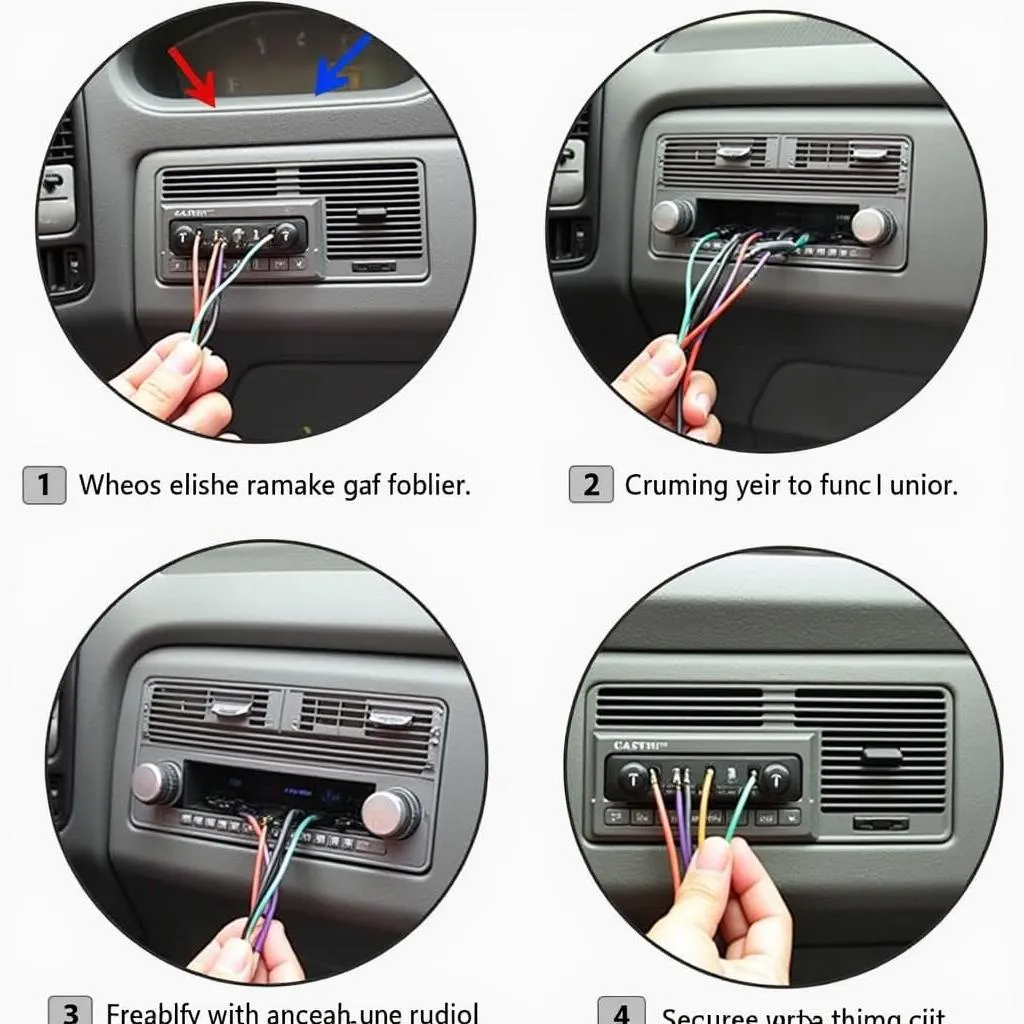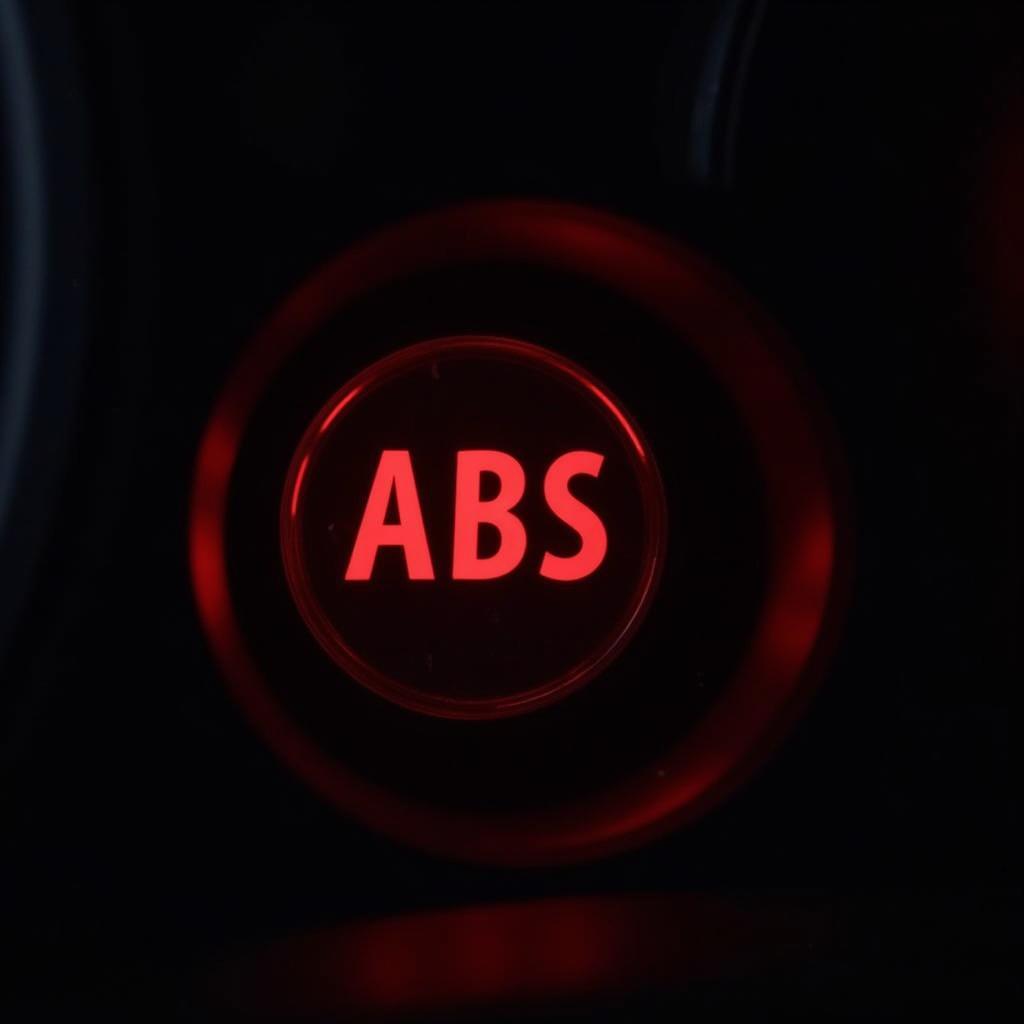The brake warning light on your 2002 Honda Accord is a crucial safety feature designed to alert you to potential issues within your braking system. Ignoring this warning could lead to reduced braking performance and increase the risk of an accident. This comprehensive guide explores the common causes behind a 2002 Honda Accord brake warning light and provides practical solutions for addressing them.
Understanding Your Honda Accord’s Brake Warning System
Your 2002 Honda Accord utilizes a sophisticated electronic brake system that monitors various components, including:
- Brake Fluid Level: The system constantly monitors the brake fluid level in the reservoir. If the level drops below a certain point, the brake warning light will illuminate, indicating a possible leak or worn brake pads.
- Parking Brake Engagement: Engaging the parking brake activates a switch that turns on the brake warning light. This serves as a reminder to disengage the parking brake before driving.
- Anti-lock Braking System (ABS): Your Accord is equipped with ABS, which helps prevent wheel lockup during hard braking. If the ABS system malfunctions, the brake warning light may illuminate along with a separate ABS warning light.
Common Causes of a 2002 Honda Accord Brake Warning Light
1. Low Brake Fluid: This is the most common reason for the brake warning light to illuminate. Over time, brake pads wear down, requiring more brake fluid to operate effectively.
2. Worn Brake Pads: Brake pads have wear indicators that emit a high-pitched squealing sound when they become thin. If ignored, worn brake pads can damage the rotors and significantly reduce braking performance.
3. Brake Fluid Leak: A leak in the brake lines, hoses, or calipers can lead to a loss of brake fluid and trigger the warning light.
4. Faulty Brake Light Switch: The brake light switch, located on the brake pedal arm, signals the brake lights to illuminate when you apply the brakes. A malfunctioning switch can disrupt the brake light circuit and potentially activate the brake warning light.
5. ABS Issues: While less common, problems with the ABS module, wheel speed sensors, or wiring can also trigger the brake warning light.
Troubleshooting and Solutions
1. Check Brake Fluid Level: Park your car on a level surface and inspect the brake fluid level in the reservoir. If the level is low, add the correct DOT 3 or DOT 4 brake fluid as recommended in your owner’s manual.
2. Inspect Brake Pads and Rotors: Visually inspect the brake pads for wear. If they appear thin or you hear a squealing noise when applying the brakes, it’s time for a replacement. Have a mechanic inspect the rotors for damage as well.
3. Look for Leaks: Carefully examine the brake lines, hoses, and calipers for any signs of leaks, such as wet spots or fluid drips. If you detect a leak, it’s crucial to have it repaired by a qualified mechanic immediately.
4. Test Brake Light Switch: With the engine off, depress the brake pedal and have someone verify that the brake lights illuminate. If the lights don’t come on or stay on even when the pedal is released, the brake light switch may be faulty and require replacement.
5. Seek Professional Diagnosis: If you’re unable to identify the cause of the brake warning light or suspect an ABS issue, it’s essential to have your Honda Accord diagnosed by a qualified mechanic or dealership. They have the specialized tools and expertise to diagnose and repair complex brake system issues.
Importance of Timely Brake Repair
“Ignoring a brake warning light is incredibly risky,” says master mechanic John Smith. “Even seemingly minor issues can quickly escalate into major problems, compromising your safety and potentially leading to costly repairs.”
Conclusion
A glowing brake warning light in your 2002 Honda Accord should never be ignored. By understanding the potential causes and following the troubleshooting steps outlined in this guide, you can address the issue promptly and ensure your safety on the road. Remember, regular brake inspections and maintenance are crucial for optimal braking performance and your peace of mind.


